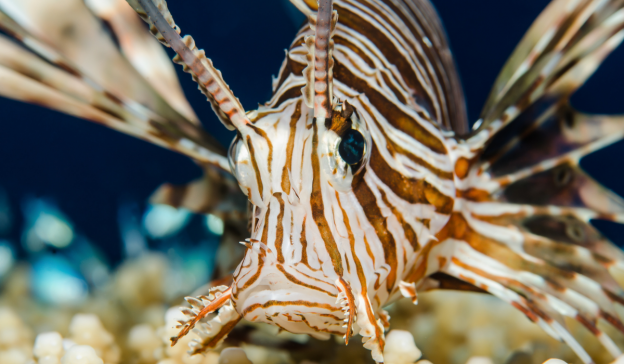Over the past 10 years, the presence of Lionfish in Caribbean waters has given birth to a great deal of misinformation about its position in this delicate ecosystem. Here are the most common myths debunked by facts about the exotic fish known for its beautiful and hypnotic appearance.

Myth: Lionfish are aggressive predators with a natural instinct to attack.
Fact: Lionfish live in the crooks and crannies of the coral reefs where they wait for their prey which consists of the smaller tropical fish endemic to the area.
Myth: Lionfish are a beautiful harmless tropical species indigenous to the coastal waters of Riviera Maya.
Fact: Lionfish is a predatory species native to the South Pacific and Indochina. How exactly they arrived at Riviera Maya is uncertain but is definitely considered an invasive species.
Myth: Lionfish are mostly spines and unsuitable for human consumption.
Fact: Lionfish are delicious and great in tacos! Local restaurants have learned and trained their cooks to prepare this white meaty fish in several different dishes.
Myth: Lionfish cannot be eradicated and will be the demise of all coral reefs.
Fact: All over the Caribbean fisheries and dive centers are doing their part to hunt and eradicate Lionfish from the Mesoamerican Reef.
Myth: Anyone can participate in lionfish hunting.
Fact: Lionfish have highly venomous spines and need to be handled delicately. Only certified divers and fishermen trained in responsible spearfishing can participate in a lionfish hunt to protect other people and the reef.
Myth: Only scuba divers and fishermen can help eradicate lionfish from the Caribbean.
Fact: When visiting local restaurants in the Caribbean you can request lionfish to increase the demand and support local fishing coops.
In Akumal, expert hunters volunteer on multi-level dives to extract lionfish from all areas in the reef. The Akumal Dive Center offers a Lionfish hunting certification program that teaches divers to scout the invasive species while protecting the integrity of the coral reef. Contact us for more details on how you can participate and actively help maintain our coral reefs healthy.
